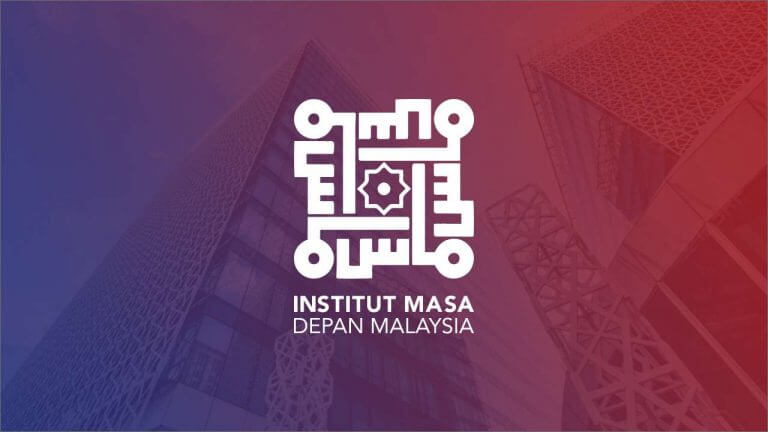MEDIA STATEMENT
CALLING FOR FISCAL CONSOLIDATION AND STRENGTHENING SMEs UNDER BUDGET 2023
30 SEPTEMBER 2022
Institut Masa Depan Malaysia (MASA) would like to urge the Government to consider our wishlist for Budget 2023 in two key areas – fiscal consolidation and strengthening of the small and medium-sized enterprises (SMEs).
As of June 2022, Malaysia’s debt stood at RM1.045 trillion while the Federal Government’s debt service payment was RM43.1 billion, or 18.4 per cent of national revenue. It was also reported that RM19.8 billion had been spent by the end of June 2022 to pay for Malaysia’s total debts’ interest payments.
In view of the uncertainty facing the global economy, Malaysia must possess a solid fiscal footing. Its operating expenditure is bloated, with emoluments taking up almost 37 per cent and retirement charges of 12 per cent share to the Gross Domestic Product (GDP). Hence, the first step is to reduce government expenditure.
The Government must consider alternative approaches to managing Malaysia’s cash flow for healthy finances by reducing the implementation of insignificant projects and unnecessary spending. Instead of focusing on highways and building skyscrapers, the Government should emphasize on elevating the standard of living and wellbeing of the Rakyat.
The Government should develop new revenue-generating strategies, with focus on raising national productivity. Tax alone constitutes 73.2 per cent of total revenue. As such, the Government needs to find new sources of revenue for the country. It should leverage the growth of digital economy and automation to enhance Malaysia’s competitiveness and productivity.
As a short-term approach, a tax mechanism to broaden the tax bracket for T5 to T10 individuals and big companies should be implemented. The Government can use this opportunity to recover any lost taxes from undeclared income. For a long-term approach, the Government must make big steps in huge revenue reformation and harmonise its fiscal policy for a better financial consolidation.
The SMEs must be supported at all costs. Not only do they make up 97.4 per cent of all business establishments in this country. The also contribute 37.4 per cent of the GDP. This sector has always been the backbone of the country’s economy, contributing 11.7 per cent in exports and 47.8 per cent in providing employments.
The SMEs are the most affected segment due to the aftermath of the pandemic. They are still struggling in facing global economic headwinds caused by inflation, rising interest rates, weakening of the ringgit and labour shortage.
The increase of the overnight policy rate (OPR) three times this year is affecting the momentum of the country’s economic recovery and also the performance of SMEs. The Government, therefore, must find ways to reduce the burden of the people and the SMEs in the coming presentation of Budget 2023.
In helping the SMEs, banking institutions should allow flexibility in loan repayments and restructuring. The recommendation by the National Recovery Council (NRC) for specific moratoria be made available immediately to businesses battling the pandemic, should be implemented without delay.
The process of bringing in foreign labour into the country should be accelerated through the use of technology to expedite recruitment. Coordinated monitoring by the relevant government agencies and ministries must be intensified to ensure efficiency and transparency in bringing them to work in sectors in this country.
Budget 2023 should also incentivize digital transformation of SMEs. Japan, Korea and Thailand can be the benchmarks for Malaysia in achieving the status of a high-income nation by 2030.
Business restructuring and rapid digital transformation to ensure penetration of digital technology applications such as mobile payment, e-commerce and cloud applications among SMEs must be explored by the relevant government agencies and ministries to build SMEs’ resilience that is future-proof.
MASA hopes that its recommendations will be weighed in by the Government and translated into strategic plans and policies in line with the Shared Prosperity Vision (SPV2030) to develop a sustainable, equitable and inclusive economic distribution at all levels.
AZRIL MOHD AMIN
CHIEF EXECUTIVE OFFICER
INSTITUT MASA DEPAN MALAYSIA




